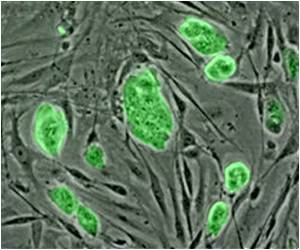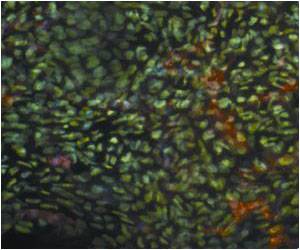
The researchers demonstrated that these CB cells, which come from the mesoderm, the middle layer of embryonic germ cells, can be switched to ectodermal cells, outer layer cells from which brain, spinal and nerve cells arise.
"This study shows for the first time the direct conversion of a pure population of human cord blood cells into cells of neuronal lineage by the forced expression of a single transcription factor," said Juan Carlos Izpisua Belmonte, a professor in Salk's Gene Expression Laboratory, who led the research team.
The study was collaborated with Fred H. Gage, a professor in Salk's Laboratory of Genetics, and his team.
"Unlike previous studies, where multiple transcription factors were necessary to convert skin cells into neurons, our method requires only one transcription factor to convert CB cells into functional neurons," said Gage.
The Salk researchers used a retrovirus to introduce Sox2, a transcription factor that acts as a switch in neuronal development, into CB cells. After culturing them in the laboratory, they discovered colonies of cells expressing neuronal markers.
Advertisement
"We also show that the CB-derived neuronal cells can be expanded under certain conditions and still retain the ability to differentiate into more mature neurons both in the lab and in a mouse brain," stated Mo Li, a scientist in Belmonte's lab and a co-first author on the paper with Alessandra Giorgetti, of the Center for Regenerative Medicine, in Barcelona, and Carol Marchetto of Gage's lab.
Advertisement
Importantly, said Marchetto, "We could use these cells in the future for modeling neurological diseases such as autism, schizophrenia, Parkinson's or Alzheimer's disease."
Cord blood cells, noted Giorgetti, offer a number of advantages over other types of stem cells. First, they are not embryonic stem cells and thus they are not controversial. They are more plastic, or flexible, than adult stem cells from sources like bone marrow, which may make them easier to convert into specific cell lineages. The collection of CB cells is safe and painless and poses no risk to the donor, and they can be stored in blood banks for later use.
"If our protocol is developed into a clinical application, it could aid in future cell-replacement therapies," said Li.
The study was published on July 16 in the Proceedings of the National Academy of Sciences.
Source-ANI














